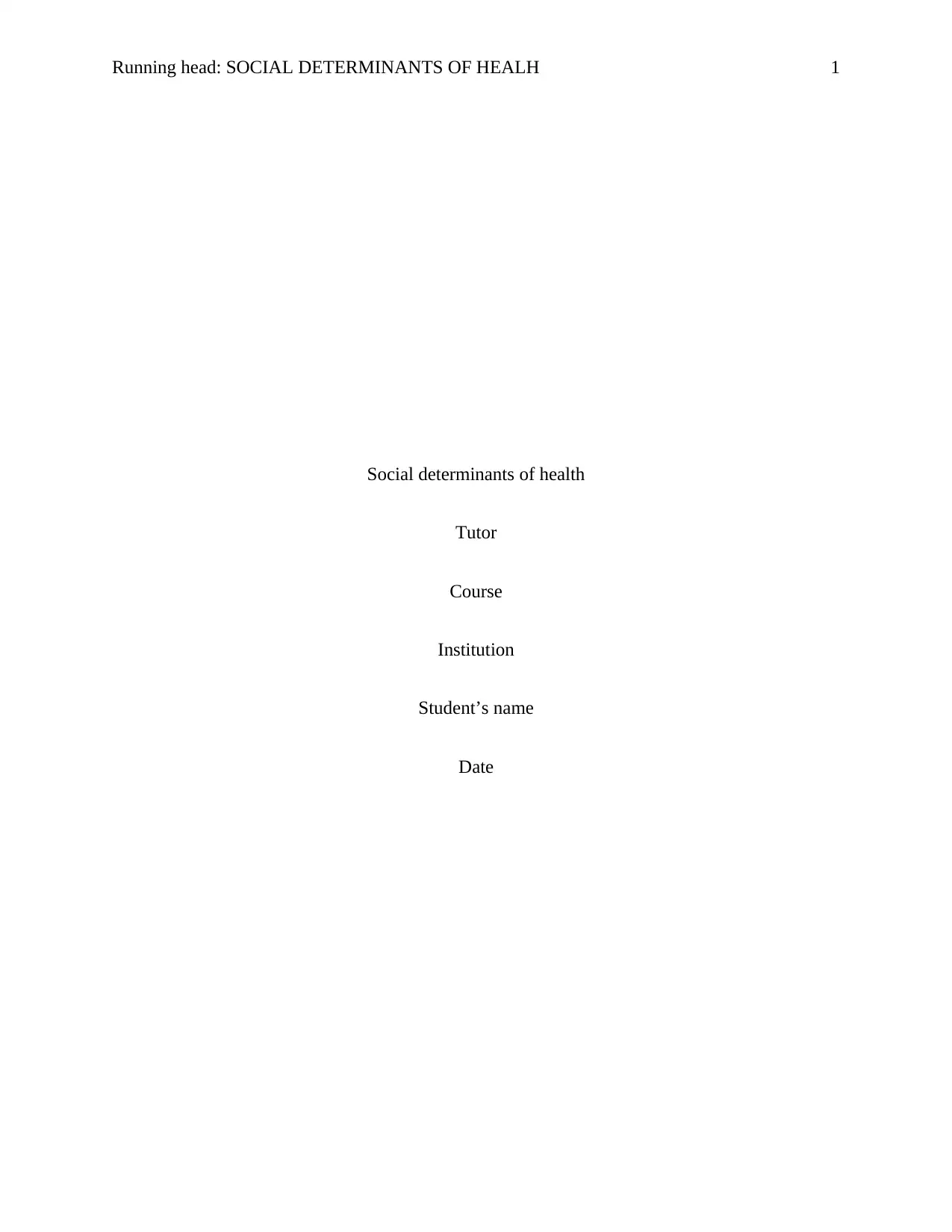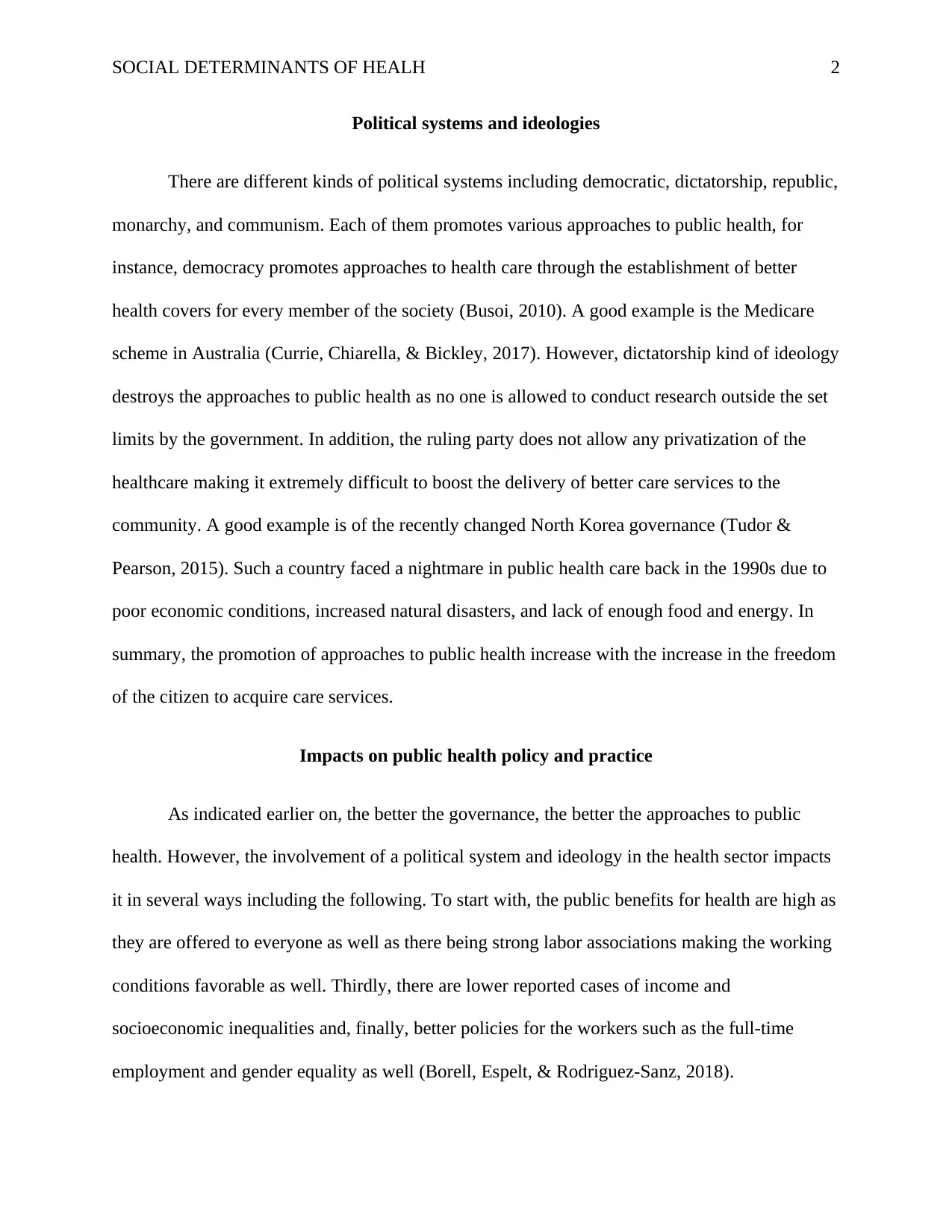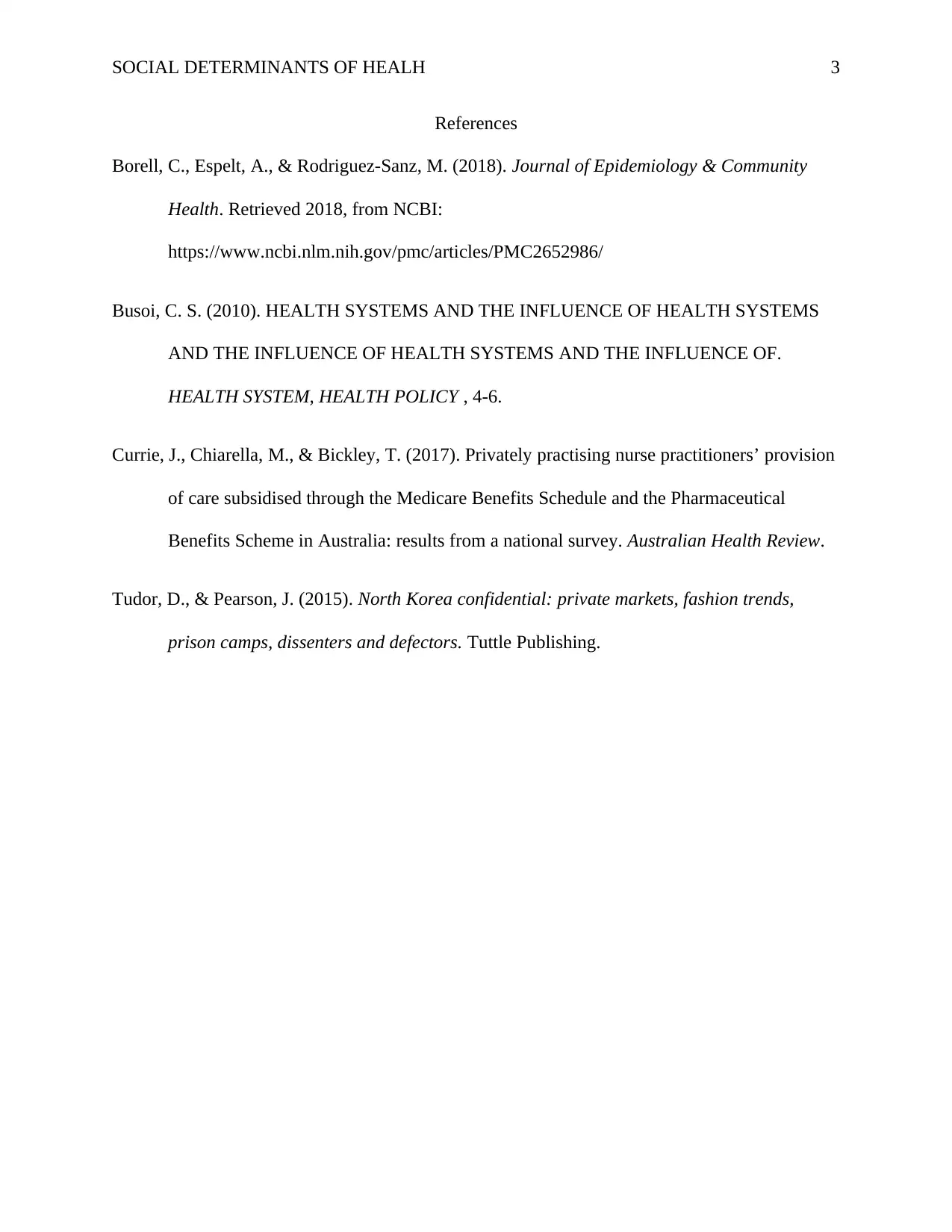The Role of Political Systems in Shaping Public Health Outcomes
VerifiedAdded on 2023/06/08
|3
|517
|408
Essay
AI Summary
This essay examines the intricate relationship between political systems and public health outcomes, highlighting how different political ideologies, such as democracy and dictatorship, impact healthcare policies and practices. It discusses how democratic systems often promote better health coverage and access for all citizens, while authoritarian regimes can hinder public health initiatives due to restrictions on research and limited healthcare privatization. The essay further explores the impact of political involvement on the health sector, noting that better governance leads to improved public health benefits, strong labor associations, reduced socioeconomic inequalities, and better policies for workers, including full-time employment and gender equality. This student-contributed document is available on Desklib, where students can access a wealth of study resources, including past papers and solved assignments.
1 out of 3





![[object Object]](/_next/static/media/star-bottom.7253800d.svg)